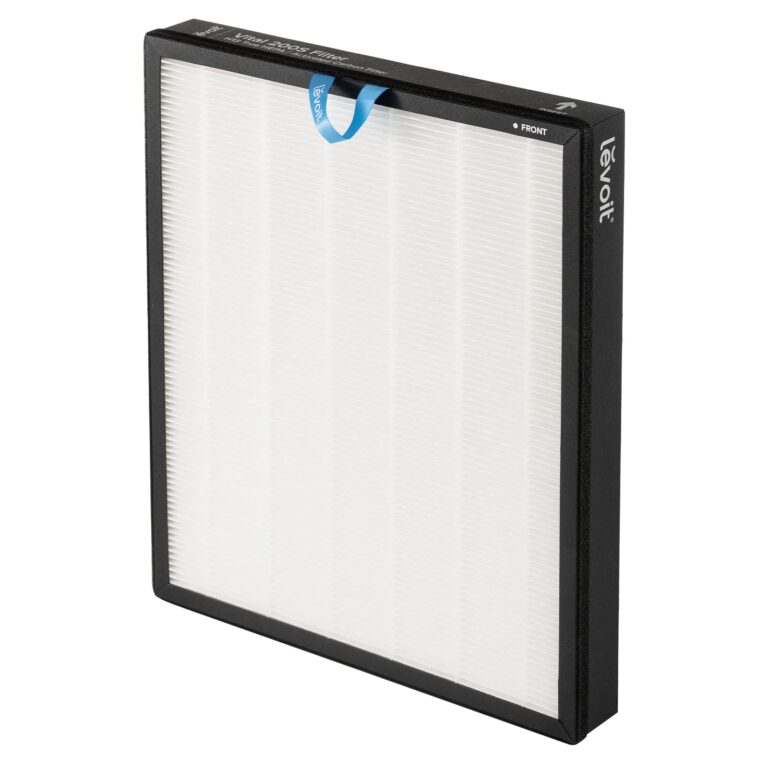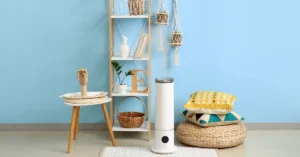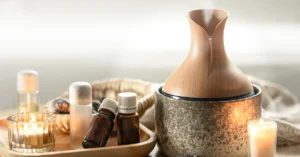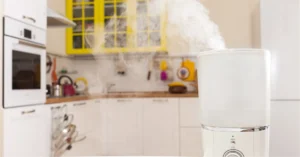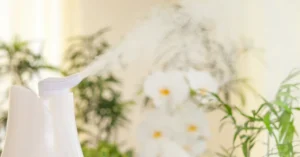The HEPA filter in an air purifier should be changed every 6 to 12 months for optimal performance and clean air. Air purifiers have become essential in many homes and offices, especially in areas with poor air quality or those sensitive to allergens.
However, regular maintenance is required to ensure the air purifier continues to work effectively, including changing the HEPA filter. The HEPA filter traps microscopic particles like dust, pollen, pet dander, and mold spores, preventing them from circulating in the air.
Over time, the filter becomes clogged with these particles, reducing its efficiency. Therefore, changing the HEPA filter every 6 to 12 months is recommended, depending on usage and air quality.
By doing so, you can ensure your air purifier continues to provide clean and fresh air for a healthier living environment.
Understanding The Role Of Hepa Filters In Air Purifiers
Clean air is essential for our overall health and well-being. One way to ensure cleaner air is by using an air purifier containing a Hepa (High-Efficiency Particulate Air) filter.
Hepa filters are designed to capture small particles and pollutants in the air, including dust, pollen, pet dander, and mold spores. They use a fine mesh that traps these particles, preventing them from circulating back into the environment.
It is important to understand the role of Hepa filters in air purifiers to maximize their effectiveness. These filters are highly efficient and can capture particles as small as 0.3 microns.
However, the filter gets clogged with particles over time, which reduces its efficiency. Therefore, it is crucial to regularly change the Hepa filter to maintain the air purifier’s performance.
The frequency of filter changes depends on various factors, such as the manufacturer’s recommendations, the air quality in your surroundings, and the usage of the air purifier.
Some manufacturers recommend changing the Hepa filter every six months, while others suggest annual replacements.
However, if you live in an area with high pollution or have allergies or respiratory conditions, it may be necessary to change the filter more frequently.
By understanding the role of Hepa filters in air purifiers and following the manufacturer’s guidelines, you can ensure that your air purifier provides clean and fresh air for you and your family.
Factors That Influence The Lifespan Of Hepa Filters
Factors such as the quality of the filter, the level of air pollution in the environment, the usage and running time of the air purifier, and the presence of pets or smokers in the household can significantly influence the lifespan of Hepa filters.
High-quality filters tend to last longer as they are designed to capture and remove pollutants from the air effectively. The filter may get clogged more quickly in areas with high air pollution, requiring frequent changes.
Similarly, air purifiers used for longer periods or in larger spaces may require more frequent filter changes. If pets or smokers are in the household, the filter may get saturated with pet dander, dust, or smoke particles more quickly, necessitating more frequent replacements.
To ensure optimal performance and efficiency, monitoring these factors and changing the Hepa filter accordingly is important.
Signs Indicating The Need For Hepa Filter Replacement
It is important to regularly change the HEPA filter in your air purifier to maintain its optimal performance.
Failure to do so can lead to reduced air purifier performance, increased dust or allergens indoors, unpleasant odors, and unusual noises.
Furthermore, occupants may experience allergy or respiratory symptoms if the HEPA filter is not replaced.
How Often To Change The Hepa Filter?
Regularly changing the HEPA filter in your air purifier is essential for maintaining clean and healthy indoor air.
The optimal frequency of HEPA filter replacement can vary depending on factors such as the manufacturer’s guidelines and the specific circumstances of your environment.
Many air purifier manufacturers provide guidelines on when to change the HEPA filter.
These guidelines are typically based on the air purifier’s usage and the specific model. It is important to follow these guidelines to ensure that your air purifier continues to remove pollutants from the air effectively.
In addition to the manufacturer’s recommendations, tailoring the replacement schedule to specific situations can be beneficial.
For example, if you live in a highly polluted area or have pets, you may need to change the HEPA filter more frequently.
Similarly, individuals with allergies or respiratory conditions may need to replace the filter more often to maintain optimal air quality.
Steps To Take When Replacing A Hepa Filter
Steps to Take When Replacing a Hepa Filter
Switching off and unplugging the air purifier: Before you begin replacing the HEPA filter, switch off the air purifier and unplug it from the power source. This will prevent any accidents or mishaps.
Accessing and removing the old filter: Locate the filter compartment, usually at the back or the sides of the air purifier.
Open the compartment and carefully remove the old HEPA filter. Make sure to follow the manufacturer’s instructions to avoid any damage.
Installing the new filter correctly: Take the new HEPA filter and insert it into the filter compartment in the same position as the old one. Ensure that it is securely in place and properly aligned. Close the filter compartment.
Resetting the filter replacement indicator, if applicable: Some air purifiers have a filter replacement indicator that needs to be reset after changing the HEPA filter. Refer to the user manual of your air purifier to find out how to reset the indicator, if necessary.
Tips For Extending The Lifespan Of Hepa Filters
Tips for Extending the Lifespan of Hepa Filters:
- Regular air purifier maintenance routines
- Keeping the surrounding environment clean
- Avoiding exposure to excessive moisture or chemicals
Hepa filters in air purifiers play a crucial role in improving indoor air quality by capturing small particles and allergens. To ensure their effectiveness and prolong their lifespan, following these tips is essential:
Regular air purifier maintenance routines:
Perform routine maintenance tasks, such as cleaning or replacing the pre-filter, as the manufacturer recommends. Regular maintenance ensures proper airflow and prevents clogging of the Hepa filter, improving its efficiency in capturing pollutants.
Keeping the surrounding environment clean:
Minimize dust, pet dander, and other pollutants by regularly vacuuming or sweeping the room. Keeping the area clean reduces the workload on the Hepa filter, allowing it to last longer before needing replacement.
Avoiding exposure to excessive moisture or chemicals:
Hepa filters are sensitive to moisture and chemicals, which can damage their fibres and reduce effectiveness over time. Protect the filters by using air purifiers in rooms with appropriate humidity levels and avoiding exposure to strong chemicals or odors.
:strip_icc()/BHG_DysonPurifierHumidify-CoolFormaldehyde-White-2625b11200914de7997a5c6cb50ac845.jpg)
Credit: www.bhg.com
Frequently Asked Questions On How Often To Change The Hepa Filter In An Air Purifier
How Do I Know If My Hepa Filter Needs Replacing?
You can determine if your HEPA filter needs replacing by observing reduced air quality, decreased airflow, or a dirty appearance. Keep track of the recommended filter lifespan and replace it to maintain efficient air filtration.
How Do I Know If My Hepa Filter Is Dirty?
To check if your HEPA filter is dirty, visually inspect it for a buildup of dust and debris. It’s time to clean or replace the filter if it appears discoloured and clogged. Regular maintenance helps maintain air quality and the filter’s effectiveness.
How Often Do You Change A True Hepa Filter?
True HEPA filters should be replaced every 6 to 12 months for optimal performance.
What Happens If You Don’t Replace Hepa Filter?
If you don’t replace the HEPA filter, it will become clogged, reducing its ability to trap particles effectively. This can result in poor air quality, increased allergy symptoms, and decreased air purifier or HVAC system efficiency.
Conclusion
Regularly changing the HEPA filter in your air purifier is crucial for maintaining clean and healthy indoor air. By replacing the filter as the manufacturer recommends, you ensure optimal performance and efficiency of your air purifier. Neglecting to change the filter can lead to reduced air quality, decreased effectiveness, and potential health risks.
So, don’t forget to prioritize filter replacement and breathe in the freshest air possible.
